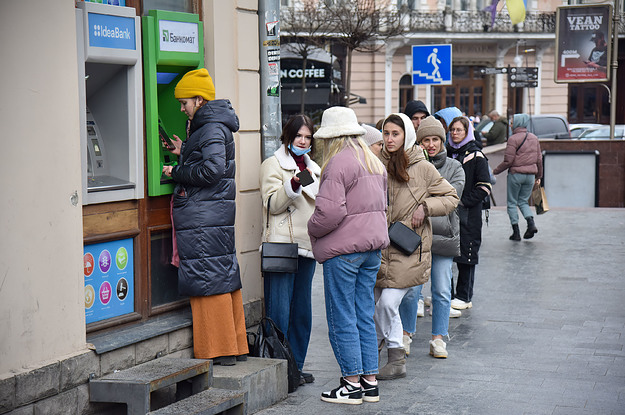Throughout a Senate listening to Thursday, Sen. Elizabeth Warren released a new monthly bill that would authorize the president to sanction international crypto corporations that are conducting business enterprise with sanctioned Russian entities, addressing the worries held by a number of associates that oligarchs could shift and conceal their assets by crypto networks.
But Michael Chobanian, the founder of Ukraine’s largest crypto trade and just one of the hearing’s witnesses, instructed customers of Congress that it would be really tricky for Russian oligarchs to use crypto to evade economic sanctions and that initiatives to control cryptocurrency marketplaces should really not undermine the capability of Russian citizens to “bring down” the Putin routine.
“Crypto gives new payment solutions for criminals and cheats,” Warren claimed through the Senate Committee on Banking, Housing, and Urban Affairs listening to, which concentrated on the job of cryptocurrency in illegal finance. In attendance were being a spectrum of witnesses, like Chobanian, who has labored intently with Ukraine’s govt to facilitate its wartime crypto fundraising marketing campaign, and Michael Mosier, previous performing director of the Treasury’s Fiscal Crimes Enforcement Community (FinCEN), which lately flagged crypto as a prospective albeit constrained process for preventing sanctions.
Warren’s laws, termed the Electronic Asset Sanctions Compliance Improvement Act, has been cosponsored by 9 members of the banking committee, which includes Sen. Mark Warner. It will come 1 week after President Joe Biden signed an govt get contacting for a “whole-of-federal government approach” to crypto regulation.
“We know other nations have utilized crypto to avoid sanctions,” Warren said. The senator pointed out that Iran, Venezuela, and North Korea have circumvented sanctions via crypto. She stated that final 12 months, 74% of the profits created by ransomware extortion, amounting to extra than $400 million in cryptocurrency, was connected to Russian-affiliated hackers, according to blockchain info platform Chainalysis.
But Chobanian, founder of Kyiv-primarily based Kuna Trade, which has presented the framework for Ukraine’s crypto donation efforts, presented the positives of applying electronic currencies in wartime. The country’s crypto crowdfund has raised additional than $50 million because Ukraine’s electronic minister Mykhailo Fedorov introduced it on Feb. 26, and now the marketing campaign has a goal of $100 million, Chobanian claimed. Less than the authority of the Ministry of Digital Transformation and the Ministry of Defense, Kuna has been acting as Ukraine’s “crypto financial institution,” converting donations into currencies these kinds of as the euro, as effectively as instantly buying goods with crypto. The Ukrainian army has employed these money to purchase far more than 5,000 bulletproof vests, 500 helmets, and 410,000 packed lunches, in accordance to a govt report.
In the besieged metropolis of Mariupol, which has been devastated by Russian attacks, such as the bombing on Wednesday of a theater employed to shelter additional than a thousand civilians, “the internet nevertheless works there, so we can supply crypto there to acquire food stuff,” Chobanian said.
The listening to disclosed not only crypto’s polarizing consequences — Committee Chair Sherrod Brown reported that electronic assets make it “easier to dedicate crimes and facilitate terrorism” — but also how lawmakers are attempting to control crypto devoid of excluding the US from its meant positive aspects.
“Lawmakers ought to not damage the United States’ name for fostering technological innovation,” Sen. Pat Toomey mentioned. “A lack of clarity is undermining that custom and driving innovation abroad.”
Jonathan Levin, CEO of Chainalysis, testified that “the transparency of blockchains boosts the ability of policymakers and regulation enforcement to detect, disrupt, and, finally, discourage illicit action.” Chainalysis has gained various governing administration contracts to present blockchain tracing solutions to federal organizations such as the FBI and Treasury Department.
At 1 position, Warren pressed Levin on the hypothetical ease with which Russian oligarchs could launder funds through crypto networks and approaches this sort of as chain-hopping, or speedily transferring cash throughout several cryptocurrencies. Levin claimed that chain-hopping would not make it possible for an oligarch to conceal their wealth. Warren claimed she was “surprised” by Levin’s answer, thinking about the character of Chainalysis’s operate.
Chobanian stated that it is “impossible to transfer substantial amounts of dollars from fiat into crypto,” as it would be hard for oligarchs to rapidly change hundreds of thousands of rubles into crypto with out detection. “Even if they do, there is practically nothing [Russian oligarchs] can do with it. For them, it is just quantities, which are quite useless.”
Furthermore, Chobanian claimed he hopes that efforts to implement sanctions will not slash off frequent Russian citizens from crypto networks. “There are a ton of Russians in and outside of Russia who depend on crypto. These people today are the opposition to the Putin routine,” he reported. Chobanian pointed out that payment suspensions by Visa and Mastercard have greater Russians’ reliance on crypto and that it is very important to “still enable the opposition to survive both of those inside Russia and outside.”




